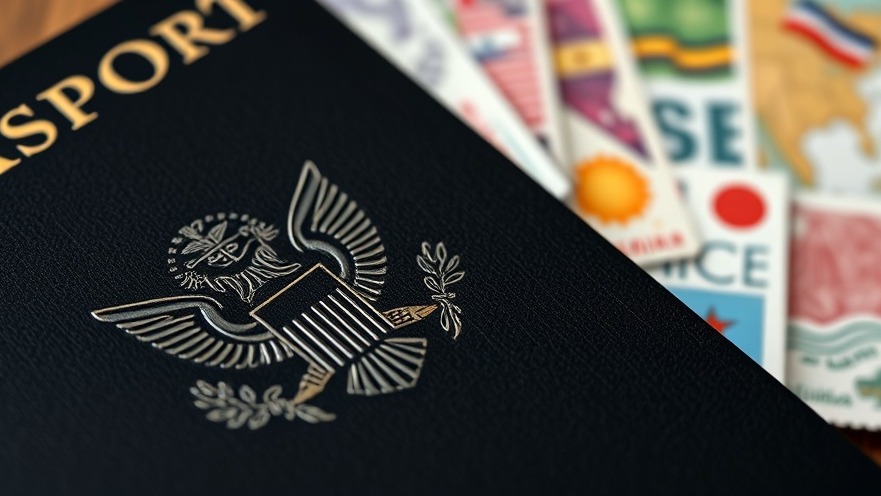
State Department Issues Global Travel Warning Amid Rising Tensions
In a significant response to escalating tensions, the U.S. State Department has issued a worldwide caution for American travelers following President Trump's recent military strikes in Iran. This alert comes as anti-American sentiment begins to rise globally, prompting the need for vigilance among citizens abroad.
Why Is This Warning Important?
The travel advisory serves as a crucial notice for U.S. citizens who may find themselves in volatile regions due to political unrest. As international relations become more strained, such advisories help to ensure the safety of American citizens while traveling or residing overseas. The impact of Trump's military action could provoke responses not only from Iranian entities but also from sympathizers in other nations, amplifying risks for tourists and expatriates alike.
Understanding the Broader Context of U.S.-Iran Relations
The current advisory is steeped in a lengthy historical context between the United States and Iran. Over decades, relations have fluctuated between diplomatic engagement and outright conflict, with tensions often peaking in response to military operations. President Trump’s assertion of decisive leadership through these latest strikes underscores a critical turning point for U.S. policy toward Iran, emphasizing a shift from diplomatic de-escalation to military confrontation.
Future Predictions: What’s Next for Travelers?
With the prospect of an increasing military presence and the aggressive rhetoric surrounding U.S.-Iran relations, many are left wondering the future of international travel. Analysts predict possible rises in anti-U.S. protests and potential retaliatory actions against American interests abroad. This raises critical questions about how Americans can navigate these uncertain conditions, especially with summer travel plans on the horizon.
Diverse Perspectives on the U.S. Approach
Former officials and various lawmakers have expressed differing views on the ongoing military strategy against Iran. Some praise Trump's decisiveness as a necessary measure to curb Iran’s influence, while others advocate for diplomacy to avoid engaging in another protracted conflict. The underlying debate continues to shape public perception and could influence travelers' decisions regarding their international itineraries.
Insights for Travelers: Precautions and Recommendations
For those considering travel to regions potentially impacted by these developments, there are several best practices to consider. Staying informed through reliable news outlets, registering with the U.S. embassy in the destination country, and adhering to the State Department's guidelines are steps every traveler should take. Additionally, having an emergency plan in place and keeping communication lines open with family back home can help mitigate risks.
Emotional and Human Interest Angles
The emotional toll of uncertainty can be immense for travelers and their families. Concerns about safety and the implications of broader geopolitical conflicts often overshadow the excitement of travel. Stories of citizens caught in the crossfire, either physically or metaphorically, remind us of the real-life stakes involved in international conflict.
Call to Action: Stay Informed
As we navigate this complex landscape, it’s essential for travelers to remain vigilant and informed. Review the latest travel advisories and make well-informed decisions before embarking on any international journey. Awareness and preparation are your best allies in ensuring a safe travel experience.
 Add Element
Add Element  Add Row
Add Row 



 Add Row
Add Row  Add
Add 


Write A Comment